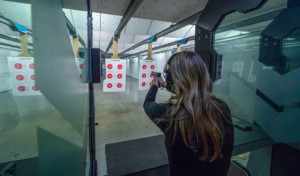 Firearm fatalities have fallen by 56% in the past five years. And from 2024 to 2025, gun deaths dropped 16%, according to the Association of Health Care Journalists. Serious crimes in six states with stringent gun laws see firearms used in 73% of homicides compared to 75% in eight states with lax laws, according to Ammo.com, an internet-based ammunition store.
Firearm fatalities have fallen by 56% in the past five years. And from 2024 to 2025, gun deaths dropped 16%, according to the Association of Health Care Journalists. Serious crimes in six states with stringent gun laws see firearms used in 73% of homicides compared to 75% in eight states with lax laws, according to Ammo.com, an internet-based ammunition store.
According to firearm crime lawyer Matthew G. Borgula, being charged with a firearm crime is very serious, and harsh penalties are meted out, such as prison time, stiff fines, or simply getting a felony on your record. Being charged does not necessarily imply the accused is guilty.
Some defenses could counter the charges, and the outcomes can sometimes change from one party to the other, depending on the facts of the case.
Let’s discuss some of the legal strategies that can be used to defend yourself during firearm crime cases.
Self-Defense Claims
You may want to suggest self-defense as a legal strategy if you were charged for the use of firearms. A principal concept of self-defense theory explains that it is not a random act of violence, but that there existed at that time an immediate threat to your life or safety.
You must argue that the individual acted reasonably under the circumstances. Such claims may have to be shown by statements of witnesses or tapes. The jury will decide whether the reaction was proportional to the threat.
According to criminal defense law firm Gibbons & Gibbons, once you have completed the arrest and booking process, you can exercise your right to legal counsel and contact an attorney.
You’re not alone. Many others have gone through this and improved with help.
Unlawful Search and Seizure
An illegal search and seizure will pose a significant issue. If evidence was gathered improperly against you, in a way that presented you before the law, then you might be able to ask the Court to turn away the evidence based on a Fourth Amendment infringement.
Evidence gathered in an illegal search or for which there is no warrant or probable cause will likely be deemed inadmissible by courts.
An individual is entitled to security in their home and possessions so it is important to take into account how law enforcement acquires evidence for firearm charges in assessing the evidence.
Lack of Intent
Even if the police had gathered proper evidence, your case might concentrate on the point of no intent to commit a firearm crime. If you never intended by design or otherwise to unlawfully use a firearm, you can argue the absence of any such intention.
This defense can be compelling, especially if external circumstances confused situations or triggered an impulsive act.
Success using this defense may require you to demonstrate what you were thinking during the incident. A proven lack of intent might allow you to relate to people who understand your situation.
Mistaken Identity
If you can demonstrate that law enforcement recognized you as the offending agent, a mistaken identity can hold significant weight in firearm crime cases. You may find, however, that eyewitnesses can be unreliable since their accounts can get affected by stress or poor visibility.
The presentation of alibis, such as video footage showing the accused was somewhere else, would only strengthen your defense. If a person resembling the accused was present when the incident occurred, it could create reasonable doubt in the minds of the jury and the judge.
Use witness statements supporting your version of events. You have to show that the inquiry overlooked key facts. You have a stronger chance of obtaining a verdict of not guilty by attacking the procedure of identification.
Affidavit of Probable Cause
Understanding the probable cause affidavit is important in cases involving firearm crimes. This paper details the evidence that police believe you committed a crime. You can observe and dispute the prosecution’s claims.
Know that the affidavit states facts, witnesses’ testimonies, or descriptions of incidents. By careful consideration, you can find inconsistencies or even omissions favoring the defense.
Get an attorney to analyze the affidavit and create an appropriate strategy. Actively being aware of one’s rights and participating in defense can greatly influence the outcome of the case.


